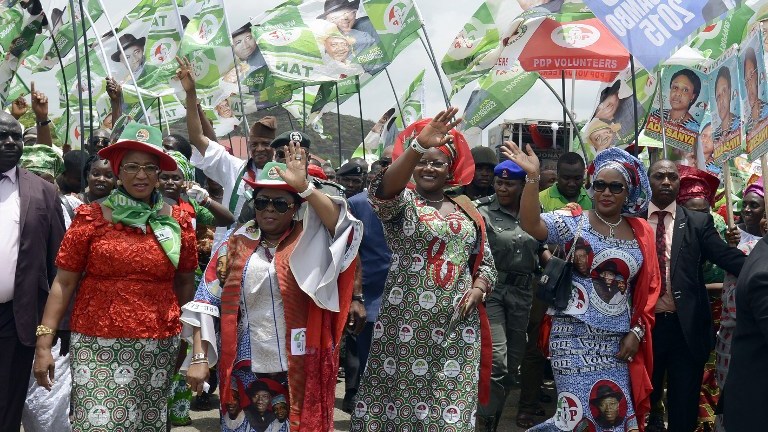
2023: Women Politicians Protest Marginalisation
Women politicians on Monday protested against the final list of Presidential and National Assembly candidates released by the Independent National Electoral Commission, saying many females have been excluded.
They also lamented the low number of female candidates contesting the 2023 general election in Nigeria, compared to their male counterparts, describing it as a reflection of the continuous marginalisation of women in the nation’s political space.
The President of Women in Politics Forum, Ebere Ifendu, who raised the issues during a press conference in Abuja, said that out of the 18 political parties in Nigeria, only one candidate contesting under the platform of the Allied People’s Movement was female, as no party fielded a female as the vice presidential candidate.
The organisation, therefore, declared support for the presidential candidate of the APM and Delta State-born politician, Princess Chichi Ojei.
For the Senate, Ifendu observed that out of the 1,101 candidates contesting for 109 Senatorial seats, 92 are women, representing 8.35 per cent while 288 women are contesting for House of Representatives out of the total 3,122 candidates.
She said that cumulatively, there are 381 women among the total of 4,259 contestants for the Presidency and National Assembly seats amounting to 8.9 per cent of the candidates.
Ifendu recalled that at the end of the 2019 general elections, women made up a total of 4.71 per cent of the elected officials, showing a decline from the 2015 period when 5.6 per cent of the elected officials were women.
She said, “Currently, there are about 15 states without a female legislator in the states’ houses of assembly and while the list of candidates is yet to be released, the released list of candidates, if any sign, does not tell of a promising increase for Nigerian women in the states houses of assembly. While we await the release of other candidates from INEC, the released list of candidates shows some states that have not fielded any female.
“A state-by-state analysis shows that of the 36 states of Nigeria, including the Federal Capital Territory, (making it 37), 5 states did not field any woman as a candidate for the Senate seat while one state did not field any woman as a candidate for the House of Representatives seat. The states lacking in this regard are Kano, Sokoto, Taraba, Yobe and Zamfara for the senate and Jigawa for the House of Representatives respectively.
“This means that even without conducting elections, 13.5 per cent of states will not have female representatives at the senate while 2.7 per cent of states will have no female representation at the House of Representatives.
“Among the states that have fielded female candidates to the National Assembly, 16.2 per cent have only one female candidate for the Senate and 10.8 per cent have only one candidate for the House of Representatives with only 8.1 per cent of states having nominated seven women and above as candidates to the senate and 29.7 per cent nominating a number of 10 and above as candidates to the House of Representatives.”
Speaking on the commencement of the presidential campaign, Ifendu charged the judiciary to in the interest of justice make necessary pronouncements against perpetrators of violence against women during the electioneering period.
She also urged the executive to ensure compliance with the minimum 35 per cent affirmative action in appointive positions in public offices, in conformity with the National Gender Policy and the judgement of the Federal High Court.
“To pass relevant laws before national and states’ houses of assembly that promote women’s political participation as no member of the parliament got elected without the votes and support of women. We demand a quick passage of the bills as we are tired of being treated with disdain by people we voted for.
“We implored security agencies to be more proactive to ensure that campaigns and elections are peaceful and all forms of violence before and during elections are addressed. We would like to commend security agencies on the Anambra, Ekiti and Osun States’ elections and ask that they sustain the success achieved.
“We also ask the security agencies to work more with female candidates across political parties in the country to provide security support during this electioneering period,” she emphasized.



